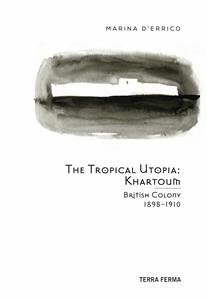An ideal city to be rebuilt from scratch where two rivers flow into one another to give birth to the great Nile. An elite team of designers. The progressive utopia of urban planners and doctors between the 19th and 20th centuries, coming to grips with the demographic explosion and with the white man’s civilizing mission. These are a few of the elements that come into play in the British reconstruction of Khartoum in the late 19th-century, after a series of bloody defeats and difficult victories. All the necessary and sufficient conditions for the drafting of a state-of-the art project are met. Instead, it so happens that the plan presents a number of ambiguities intersecting on various levels: the existence of a secret protocol, rooted in a complex military conundrum; the difficult search for a diplomatic balancing act in the British scramble for Africa, between the Berlin Conference and WWI; Victorian England’s rock-steady belief in its own values; the complex cultural and ideological background of the episode’s protagonists. The present essay addresses the combination of all these factors, which, while distancing Khartoum from its idealised image, give an almost fictional quality to its history.
Bitte wählen Sie Ihr Anliegen aus.
Rechnungen
Retourenschein anfordern
Bestellstatus
Storno









